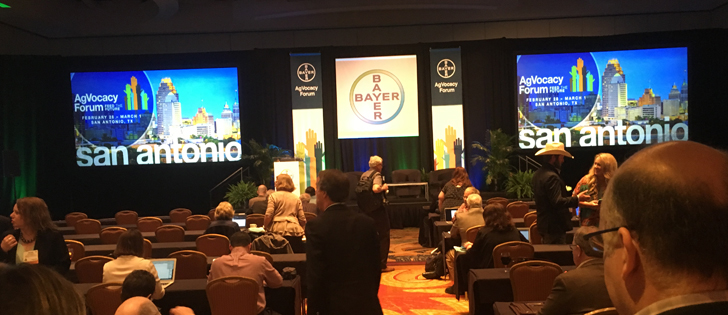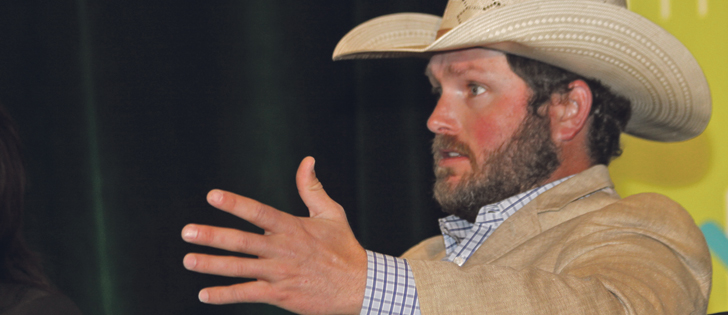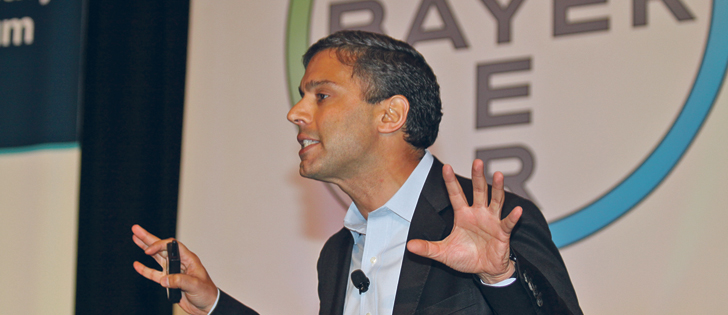SAN ANTONIO, Texas — Bayer says the debate surrounding genetically modified crops is over in Europe.
“To be honest, I think that battle is probably lost,” Adrian Percy, global head of research and development with Bayer, told delegates attending Bayer’s AgVocacy Forum.
Bayer is set to become the world’s largest seed technology company if it is successful in its attempt to acquire Monsanto.
Percy said countries such as France and Germany will not budge on their anti-GM stance, so there is no point continuing the fight.
Read Also

Farming Smarter receives financial boost from Alberta government for potato research
Farming Smarter near Lethbridge got a boost to its research equipment, thanks to the Alberta government’s increase in funding for research associations.
However, he believes it is critical that the scientific community get out in front of new technologies such as gene editing and quell consumer fears before they arise.
“There are really incredibly interesting new technologies that are becoming available, and it’s very important we use agvocacy in Europe,” he said.
“The debate in Europe is going to be a difficult one because people are entrenched at this point.”
Percy said seed technology companies failed to pitch the benefits of GM crops to consumers when they were introduced, and that was a huge mistake.
“We convinced farmers that this was a great technology that would help them in their fields, but we didn’t always reach out to consumers in the same way.”
He said the message should be that tools such as gene editing improve sustainability by helping produce more food on less land.
Percy is encouraged by the “massive push” in the scientific community to adopt and promote technologies such as gene editing. Bayer is working with the 5,000 scientists in its CropScience division to help educate the public.
“We’re trying to enable our people. We’re trying to find different ways to story tell,” he said.
David Hollinrake, vice-president of North American marketing for Bayer CropScience, said the biggest threat facing the company is the misinformation that its seeds and chemicals are unsafe.
He wants farmers to speak out in support of the technologies they’re using because they are the most trusted voice in agriculture.
“It’s about helping farmers raise their voice and do it in a passionate, powerful way, such that we can overcome the opposition,” said Hollinrake.
Bayer has had its agvocacy program in place for three years, and it has had little impact.
Hollinrake said consumer research shows about 20 percent of Americans are concerned about biotechnology and eating GM food, which is the same amount as when the program was launched.
However, he said it takes time to build a movement, and he believes the company is on the right track.
More than 1,000 farmers have taken Bayer’s four-hour agvocacy training program, which equips them with facts about biotechnology and chemicals and how to engage with consumers through social media. Another 10,000 growers have pledged to join Bayer in becoming agvocates.
Robert Fraley, chief technology officer with Monsanto, said transparency and public discourse will be crucial when introducing new products that come out of the Bayer- Monsanto merger.
“Certainly, if there’s anything that we’ve learned from our experience with GMOs, is we know that good science by itself is not enough,” he said. “It has to be accompanied by great communication and a transparent relationship with the public.”


















